Who's 'Hatemonger' in chief? Stephen Miller's biographer explains Trump's true believer
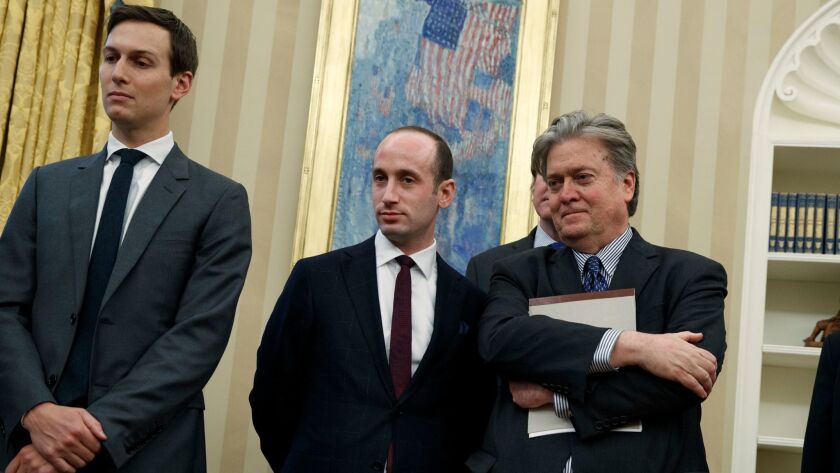
If you buy books linked on our site, The Times may earn a commission from Bookshop.org, whose fees support independent bookstores.
It takes a particular audacity to hold an outdoor event near El Paso in July, but the backdrop was the draw: a half-mile stretch of privately funded border fencing.
Stephen K. Bannon, former senior advisor to President Trump, was the event director, cajoling a chorus of far-right influencers, politicians and border officials in attendance: "Quiet on set!"
After the 2019 photo-op, Bannon offered to give Jean Guerrero, an Emmy-winning investigative reporter, a ride back to her hotel. On the drive, Bannon raised a recent Fox News hit by Stephen Miller, as Guerrero recounts in her new book, "Hatemonger: Stephen Miller, Donald Trump, and the White Nationalist Agenda."
It was Bannon, the self-proclaimed brains behind Trump's 2016 campaign shocker, who brought Miller into Trump's orbit. According to Guerrero, he referred endearingly to the aide who has outlasted him and most everyone else in the White House as an "evil robot."
A few days later, a 21-year-old white man murdered 22 people at an El Paso Walmart after posting a manifesto decrying a "Hispanic invasion of Texas," according to authorities, and declaring, "This is just the beginning of the fight for America and Europe."
Last week, Bannon, who has been advising Trump's reelection run, was arrested off of a yacht owned by a dissident Chinese billionaire and business partner. The Justice Department charged Bannon and others with defrauding those contributors who put up some $25 million for the "We Build the Wall" effort behind that half-mile of barrier.
This week, familiar apocalyptic rhetoric echoed from the Republican National Convention as Trump's most loyal defenders called him "the bodyguard of Western civilization." The orchestrator of this recurring theme isn't Bannon, but Miller. (He did not respond to requests for comment for this article.) Having had a hand in every major speech Trump has given for nearly four years, Miller's takeover of GOP establishment politics will effectively be complete on Thursday, when a weary nation wracked by the coronavirus and racial injustice hears his message — his mission — straight from the president's mouth, straight from the White House.
Guerrero told The Times that Miller, unlike Bannon and others surrounding the president, is not an opportunist or self-promoter but "a true ideologue, a true fanatic." Much has been made of the question of what motivates Miller, 35, whose prior experience consisted mostly of PR work for C-list lawmakers before leveraging a single-minded obsession with immigration into the office of then-Sen. Jeff Sessions — and then into speechwriting for Trump's nascent 2016 presidential campaign.

Guerrero's book is an exhaustive investigation into not just the how, but the why. She continues to brave threats of violence after conducting more than 100 interviews and researching the darkest corners of the American consciousness to unpack a strange (but not rare) phenomenon: the radicalization of a privileged young white man — though this one, the descendant of Jewish refugees, grew up in an increasingly diverse Southern California.
Guerrero spoke with The Times over the phone from her home in San Diego, a conversation edited for clarity and length. By her account, Miller was primed and groomed — starved for attention, yearning for belonging, and fighting what was, then, a lonely war.
Why did you decide to write this book?
I started to become interested in Miller during family separations at the border. I remember how he and officials kept talking about law and order … but the case started with a mom who also presented legally, at a port of entry. And then, if this isn't about law and order … what is it about?
I could only really answer that question if I looked at the person who was crafting these policies and tried to understand his motivations. I just kept reading about him, and as I did, it began to become all the more clear to me that he was the one really pulling the strings.
Do you think it was an advantage or a disadvantage being based in San Diego and "outside the Beltway" of Washington, D.C.?
It made it easier for me to separate the White House narrative from the reality on the ground.
When Trump was talking about "invasion" at the border, I was talking to the actual asylum-seeking families to find out who these people really were. It was a lot harder for me to just accept the narrative that they're criminals and invaders. A majority of people being demonized by the White House were fleeing violence with children and wanted to seek asylum the legal way but found themselves turned away at ports of entry, in ways that had never happened before.
How did you do it, in particular without Miller's participation? We've seen many White House "access" books on this administration.
I knew the strength of the book was going to be providing readers with an understanding of how Miller became who he is, an understanding of his early life. I really wanted to get inside of Miller's head to the best of my ability, not being able to speak with him, so it was reading everything that I learned had inspired him — really trying to see things from his perspective, every single article ever written by him, and reaching out to people who knew him directly.
For me it was really trying to bring my understanding of Southern California in the '90s, growing up at the same time as Miller did, and remembering what it was like to have that anti-immigration hostility broadcast statewide.
Some people who have this idea of Southern California as this fiercely and uniformly liberal place often seem surprised to find out that Miller grew up here. To flip that on its head: Could Miller only have come from Southern California?
Absolutely — California is a central part of why Miller is who he is today. Miller's brand of conservatism is a combative, reactionary type of conservatism, reactionary to an environment that was becoming more inclusive and diverse and celebrating of multiculturalism.
The white fear we saw in California in the '90s was really rooted in fears about demographic replacement, and in that decade whites became a minority in California for the first time. This rhetoric about an "end to civilization" in California, the "Third World" taking over, that sort of apocalyptic thinking, it's unique to California. It's this very Hollywood-style battle between the forces of light and dark.
And this is what binds Trump's reelection strategy — that the entire Democratic Party, and immigrants, and Black Lives Matter, is an existential threat to our country.

What did it mean for you personally to write this book?
I grew up with this anti-immigration hostility too — then I grew out of it. It's part of what helped me approach Miller as a subject from an empathetic point of view. I'm the daughter of a Mexican immigrant dad and a Puerto Rican mom, and there was a sense of shame associated with being Mexican. I used chamomile shampoo to try and keep in the blond. There's a lot of shame, being perceived as other. He is the descendant of Jewish refugees — to me, it makes perfect sense ... wanting to be perceived as American, with all of the privileges that is supposed to guarantee.
To me the anecdote that best illustrates this is when Miller ended his friendship with Jason Islas because of his Latino heritage, but also around the same time, expressed embarrassment to be seen being dropped off at school by the Latin American housekeeper. It was about being seen as poor, and it coincided with this period in his family life where he had a loss of privilege, moving to a less affluent part of Santa Monica. His dad was getting into all sorts of legal disputes. He was very aware of this change of fortune and wanted to hide it, and he associated his Mexican friend, the Latina housekeeper with it. He wanted to be perceived as elite.
And he learned that if he started to express these really hostile viewpoints, it was a way of standing out and getting attention and getting power, taking back some agency.
In the book, many people requested anonymity because they feared Miller. How does a 30-something guy with so little government experience really inspire that much fear?
On Capitol Hill people were talking about how he was going to go to Breitbart, so they had to watch everything they had said and make sure it wasn't too compromising. Ever since he was a teenager, he was really great at networking, getting alliances with people in positions of power, especially in the media — which scares people. He might leak something about you. It's this fear: He made Trump's reputation; he'll break theirs.
One line that struck me in the book was the suggestion that the way to effectively confront Miller was to make it clear to Trump that "Miller is the one in charge." Why hasn't Trump turned on Miller like so many others?
From early on in his childhood, Miller really mastered how to negotiate with power and to handle a sensitive ego. A close friend told me when they were teenagers they used to run into celebrities, and he would go up to the celebrity and tell them he loved their work in the most obscure movie of theirs — he knows how to flatter people in that way.
Miller is comfortable in Trump's shadow; he never gets out ahead of Trump and depicts himself as a mere devoted vehicle for Trump's agenda. Unlike Steve Bannon, who exaggerated his role and loves media attention.
I honestly believe that the most important reason Miller has been able to stay so long and have such an outsize impact is that he is a true ideologue, a true fanatic. More than anyone else in the White House, he believes that he is actually saving the world through what he is doing. Strategically that has worked out for him — and Trump has found whenever he takes a more moderate line on immigration or anything, he ends up getting ridiculed as weak, which Trump hates.
What they have in common is this idea that you have to be a killer in society. Trump has this morbid fascination with violence, and Miller's contribution to Trump's speeches really has tapped into Trump's most violent imagination, his most aggressive voting base. And Trump believes that he needs that base for reelection. He believes Miller is the reason he won in 2016, and he needs him there to win again in November.
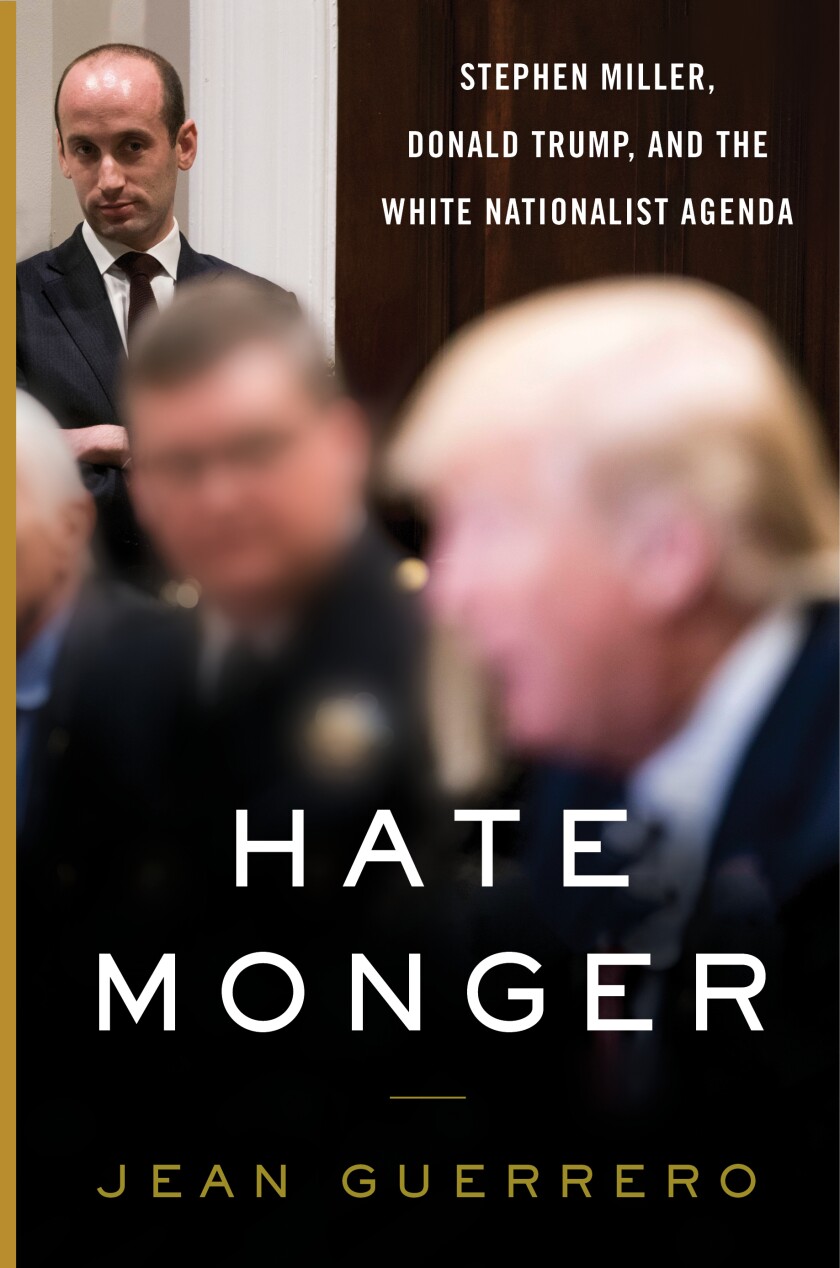
The media, myself included, clearly struggled to cover the first Trump campaign and then administration. Did you grapple with the concern that people may write off the book due to their politics?
I did — that's why nowhere in the book do I call Miller racist or xenophobic, or anything like that. We don't know what is in a person's heart with absolute certainty. I grappled with that. Neutrality is necessary for journalistic integrity, an integral pillar of our democracy, and we absolutely need that, but also this reluctance we've had as journalists to use these words has created space for white supremacists to operate with impunity.
What I tried to do in the book is show what Miller is doing and saying, and the white supremacist sources, so that people can draw their own conclusions. I did not write this book to tell you that Miller hates anyone. I can say, with the confidence of my reporting, that he is fluent in hate and deliberately traffics in hate and communicates with people who hate.
I've been getting threats of violence calling me a "hatemonger." I anticipated this — I prepared with PEN America to make sure my information and my family's information was protected so that we can't be doxxed. Then there's the intentional psychological warfare. You look at the strategy paper telling the Republican Party to remake itself around initiating fear. It really is so effective you start to question your own perception of reality.
What's in it for Miller, who, especially if former Vice President Joe Biden wins in November, will forever be associated with cruel policies, many of which could be undone?
I would be surprised if Joe Biden made it a priority to reverse the actions of Miller … not just because of the pandemic, but because both the Democratic and Republican party have been so effective at marrying the concepts of immigration and criminality. Immigration is a wedge issue — that's why Miller was able to use it to rally people around Donald Trump. It's a lot easier to scapegoat an entire group for society's problems than actually try and solve them in their complexity.
I think Miller is always going to have allies in the nativist movement and the white nationalist movement, he's always going to find a place. He is very ambitious. … He's told people his ultimate goal is to become a senator, and I wouldn't be surprised if he ran for office somewhere. But I don't think he's allowed himself to envision an alternate reality where Trump doesn't win reelection.
I don't think Miller and everything he represents is going to go away after November. He's going to continue to rally people around his ideas, which are not just his ideas.
The thing with Bannon and Donald Trump is, they're out to con people. … Miller is accountable for his own actions and responsible for everything he's done, but he was indoctrinated at a very young age into this idea that he needed to save the United States from this imagined threat of Black and brown people.
To me, it's more of a sad story than it is an angry story.
Juan

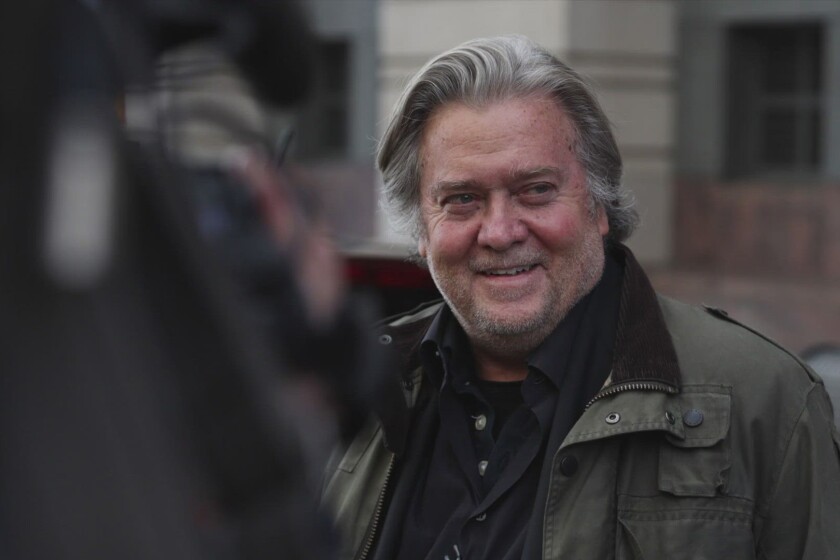
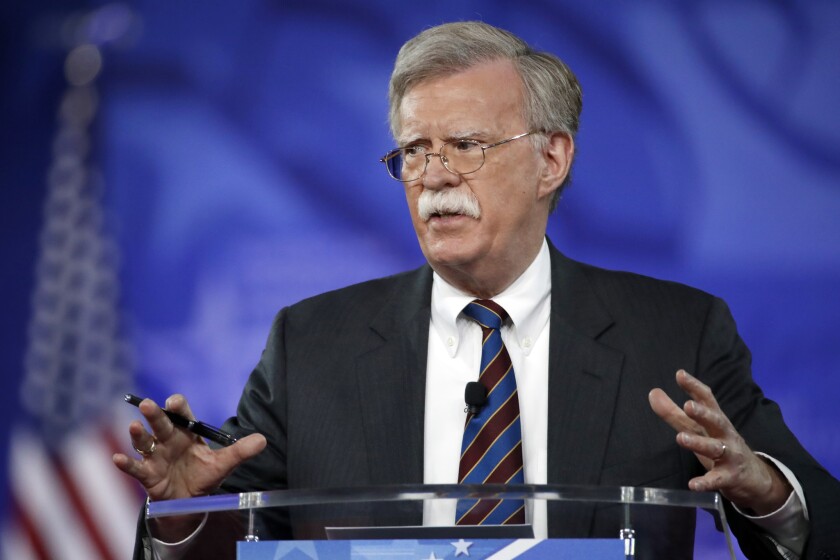
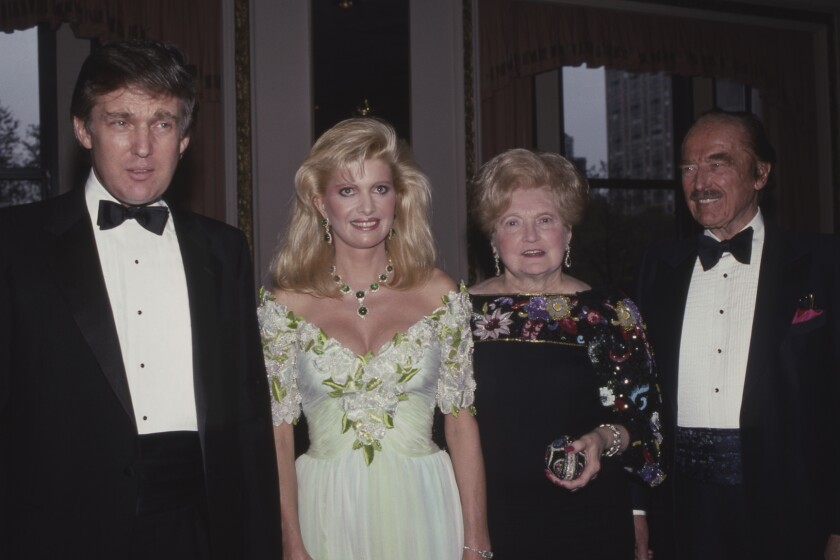
No comments:
Post a Comment